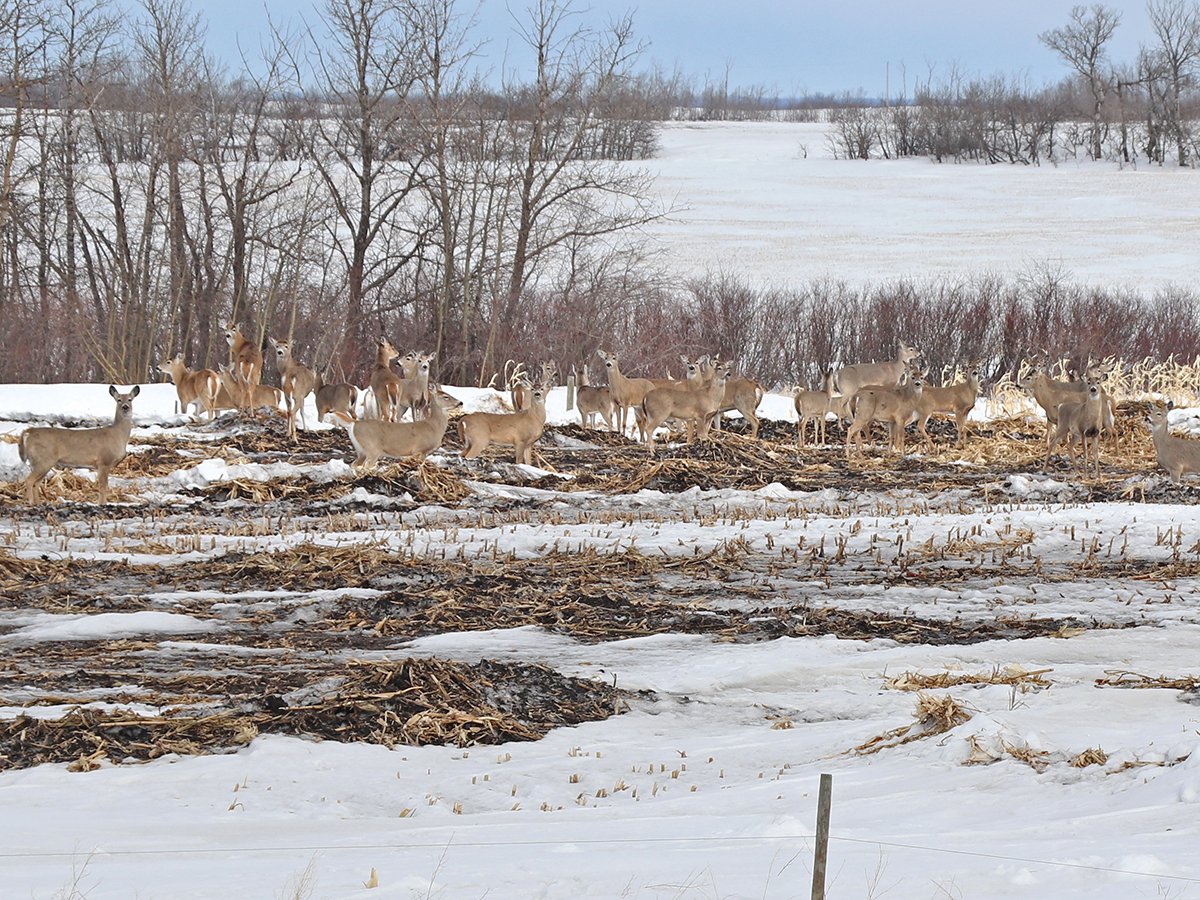The rise of contracts and formula pricing has resulted in an information gap that threatens government programs
OTTAWA — Ten percent of Canadian fed cattle were sold for cash last year.
That shift in marketing patterns is occurring across North America and is causing an information gap.
“For programs such as AgriStability, they need an inventory to do the accrual adjustments. They need a price to value cattle at,” Brian Perillat of Canfax said in an interview.
“If the government doesn’t have proper information, you risk getting an inappropriate payment. Maybe it is more and maybe it is less.”
The issue was discussed during the domestic agriculture policy committee at the Canadian Cattlemen’s Association’s annual meeting in Ottawa March 9-12.
Read Also

Foot-and-mouth disease planning must account for wildlife
Our country’s classification as FMD-free by the World Organization for Animal Health has significant and important implications for accessing foreign markets.
Canfax is relied on to provide accurate information, but for the last 20 years the cash market has declined in favour of contracts and formula pricing.
These agreements are confidential, but there is a push to voluntarily report sales at least once a year so the figures can be used as the basis of the Western Cattle Livestock Price Insurance Program, AgriStability and AgriInvest. These business risk management programs need information about the trade to set premiums and make payouts.
“Eligibility for a BRM payment would be contingent upon the reporting of sales,” said Rosser Lloyd of Agriculture Canada.
The data can also be used during trade disputes, such as calculating the losses experienced because of country-of-origin labelling or if Canada should face a countervail or a dumping charge.
A price discovery task force was set up two years ago to include information on cattle sold via contracts or other forms of marketing agreements outside the cash trade.
“We have seen the trends of what happens in market transparency, and price signals don’t become very clear in a thin market, so we are trying to be proactive to head off some of this,” said Perillat.
The shrinking cash market is a challenge for other sectors, said Brenna Grant of Canfax.
“Beef is not the only one looking at prices and transparency issues,” she said.
For example, few hogs are traded for cash anymore, and setting Canadian prices is becoming in-creasingly difficult.
Eleven of the value chain roundtables have come together to develop better data, and a report should be available in April.
The situation is similar in the United States, where less than 20 percent of cattle are traded in the negotiated cash market, even though that trade is seen as the primary price discovery mechanism.
The problem was explored in a 2014 paper written for Canfax by agriculture economist Ted Schroeder at Kansas State University. The paper, Effective Canadian Fed Cattle Price and Market Information, said cash has been largely replaced with contracts, alliances, grids and formula pricing arrangements. However, the cash negotiated market is used as the basis for formula arrangements.
These arrangements can work well for feedlots and packers, but the accuracy of reported prices is questionable.
“If the negotiated cash price reported is not reliable, then formula prices using thin cash price as a base are also suspect,” he wrote.
These arrangements are favoured because they reduce costs, and there is potential to earn premiums for specific quality cattle and carcasses. A contract also helps feedlots schedule marketings and packers can keep plants operating at efficient levels.
The full paper may be viewed at www.cattle.ca/assets/aboutus/Price-Discovery-Schroeder.pdf.















